Erica Verrillo's Blog, page 102
August 7, 2013
Amazon Declares War on the Publishing Industry, Enlists Obama
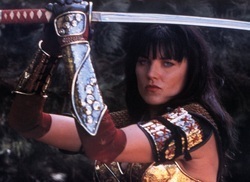 President Obama's recent public endorsement of Amazon - delivered in Amazon's warehouse in Chattanooga, Tennessee no less - has generated a firestorm of criticism from just about everybody: the GOP (which considers anything Obama says to be an "old idea"), The American Association of Booksellers (which called it "greatly misguided"), and competing online booksellers (which immediately dropped their prices in response to Obama's "grand bargain" comment).
President Obama's recent public endorsement of Amazon - delivered in Amazon's warehouse in Chattanooga, Tennessee no less - has generated a firestorm of criticism from just about everybody: the GOP (which considers anything Obama says to be an "old idea"), The American Association of Booksellers (which called it "greatly misguided"), and competing online booksellers (which immediately dropped their prices in response to Obama's "grand bargain" comment). The truth is that even though Amazon has not reported a profit in years, its clout in the publishing industry is tremendous. Even mighty dinosaurs like Random/Penguin are shifting their publishing strategies to compete with the Amazon model (which is to sell lots and lots of stuff for cheap - regardless of quality - while shifting overhead expenses onto independent sellers, in this case, authors).
There can be no doubt that Amazon's slash-and-burn policies are hurting brick-and-mortar retailers like Barnes & Noble, which rely on higher-priced physical book sales. Other online booksellers are also suffering. In an effort to win back some of Amazon's huge market, Overstock dropped its prices to 10% below Amazon's. The result? Amazon slashed its prices even further, making it impossible for Overstock to even think about turning a profit.
Why is Amazon driving other publishers out of the industry?
Because it can. In spite of antitrust laws, monopolies are the rule of the day in the publishing industry. There are only five major publishers left, which have gobbled up the lion's share of the print market. Amazon is simply following suit. It is also worth pointing out that Amazon is more diversified than traditional publishers. It sells everything. In that regard it is more like Walmart than Random/Penguin. And in the fine Walmart tradition, it stiffs its employees, busts unions, and buys influence.
Money Talks: Politicians Walk
After Jeff Bezos, founder of Amazon, announced he was buying the Washington Post (for a cool $250 million), the media were quick to point out that Amazon's influence had already extended deep into the political realm.
Amazon is no stranger to hawking its goods to the feds. It was an undisclosed contributor to the Obama campaign, cheerfully donating its cloud infrastructure services, which easily outstripped Romney's unreliable IT. What's more (conspiracy theorists will love this!), Amazon has strong economic ties to the CIA, which recently signed up Amazon to build a private cloud infrastructure for a tidy $600 million.
According to the FCW's March 18th report:
"Amazon Web Services will help the intelligence agency build a private cloud infrastructure that helps the agency keep up with emerging technologies like big data in a cost-effective manner not possible under the CIA's previous cloud efforts."
With those kinds of connections Amazon doesn't have to turn a profit on its books. It can run at a loss for decades, which, in some respects, is no different from laundering money through real estate "losses" (a favorite accounting trick of the Mafia).
Too much information
At this point, you, the humble author, are feeling overwhelmed. What has all this got to do with whether you self-publish your book or follow a more traditional publishing route? And, who do you root for? Amazon, with its open-door policy, or the giants, with their musty, and somewhat self-righteous, air of respectability (which you hope will somehow rub off on you)?
As an author, you should root for neither. As far as the publishing industry is concerned, nobody has your best interests in mind. It's a dirty business. And it's only getting dirtier.
Published on August 07, 2013 09:15
August 3, 2013
Literary Agents Who Are Seeking Writers
 If you are an unpublished writer looking for a literary agent, your best bet is someone who is building a client list. These agents are hungry for success, and will go the extra mile for their clients.
If you are an unpublished writer looking for a literary agent, your best bet is someone who is building a client list. These agents are hungry for success, and will go the extra mile for their clients.The only drawback to working with new agents is that they generally don’t have extensive contacts in the publishing industry. However, the agency they work for might.
Reading the bios of all the agents in an agency will give you a good idea of the breadth of the agency, as well as its contacts. (Which publishing houses, for example, has the agency worked with?)
Beth Campbell of BookEnds, LLC
Note: BookEnds is recommended on Preditors and Editors
What she is looking for: romance, cozy mystery, YA, fantasy, science fiction, and women's fiction submissions.
Contact: BCampbell@bookends-inc.com.
The Details: “After an undergraduate career filled with publishing internships, Beth joined BookEnds as a literary assistant in September 2012. She is currently working on building her list and is particularly interested in seeing romance, cozy mystery, YA, fantasy, science fiction, and women's fiction submissions.
In addition to working as an assistant, Beth is also the company's rights coordinator. She works with BookEnds' authors to sell the foreign, audio, and performance rights for our available titles.
Beth graduated from Dickinson College in May 2012 with a BA and honors in English Literature. She is happy to be living in her native New Jersey and thrilled to be working in an industry she loves. She is an avid reader of fantasy, YA, and sci-fi novels and also enjoys drawing, cooking, and spending far too much time on the Internet. Beth currently lives with her fiancé and a handful of cats.”
Sarah Nego, Corvisiero Literary
What she is looking for: middle grade and young adult fiction manuscripts, particularly speculative fiction.
Contact: “To query me, send your query letter, 1-2 page synopsis and the first 5 pages pasted into the body of an email to Query [at] CorvisieroAgency.com. Please use ‘Query for Sarah’ as your subject line. I will respond to all queries. If I have not responded and you queried me prior to the dates listed above, feel free to send a follow-up email. Otherwise, please wait to follow-up unless you receive an offer of representation from another agent.”
The Details: "I am only accepting middle grade and young adult fiction manuscripts. I'm open to any genre within those age groups, but prefer speculative fiction. Contemporary is not my favorite, but I will look at it. I am not interested in seeing poetry, novels in verse, short stories/novellas or anything focused on saving the environment (I'm all for recycling, but don't want to represent it)."
Published on August 03, 2013 05:43
July 30, 2013
What the Heck Are New Adults?
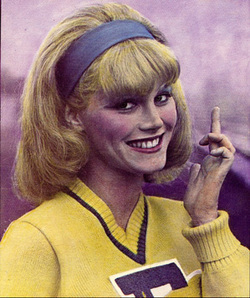 This article, published in The Independent a few days ago, answers a question I have been pondering for, well, it must be hours now - What the heck are New Adults? The answer, not surprisingly, is that they are a demographic that has not, as yet, been sufficiently exploited by publishers.
This article, published in The Independent a few days ago, answers a question I have been pondering for, well, it must be hours now - What the heck are New Adults? The answer, not surprisingly, is that they are a demographic that has not, as yet, been sufficiently exploited by publishers. For the uninitiated, "demographics" are people who buy books. In this case, "New Adults" (as opposed to Young Adults, Recent Adults, Old Adults, Senile Adults, and Adults Who Have Inner Children), are college students, or recent graduates, who, apparently, have money to waste on yet another redundant genre.
So, you may ask. what is New Adult fiction? Lots of swearing, lots of sex, and, of course, unemployment.
From Young Adult to New Adult: Books for the inbetweeners
By John Walsh, The Independent, July 28, 2013
Does the book world need a new genre? The “Young Adult” demographic began in living memory and dealt with parents, teachers, good friends, treacherous friends, crushes, body-consciousness, social diseases, moral issues and lots of snogs. Then it splintered into sub-genres of teen vampires and playground werewolves, school gangs and school romance. Teenage readers were spoilt for choice, provided they had a ceaseless appetite for pubertal trauma and pustule management.
Stand by, then, for the newest genre on the block: “New Adult.” Although the term was coined in 2009 by Dan Weiss (who masterminded the Sweet Valley High series of mild school romances for 12-year-olds), it’s only recently acquired credibility among major publishers. NA novels are written about (and often by) 18 to 25-year-olds, charting the lives of post-school, university-age friends as they encounter the world of work, offices, money, identity, rented flats and dates with people they’ve met online.
Read the rest of this enlightening article here.
Published on July 30, 2013 05:37
July 25, 2013
When You Don't Need an Agent: Publishers That Accept Submissions Directly From Authors
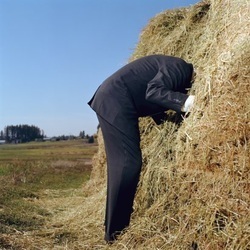 Finding an agent is harder than finding a needle in a haystack. But most major publishers, and even most mid-range publishing houses, will not look at manuscripts submitted directly to them by authors. Miraculously, there are some exceptions. Apart from DAW, these tend to be small houses. However, in matters of publishing, size doesn't always matter. Chicken Soup for the Soul was published by a small publishing house.
Finding an agent is harder than finding a needle in a haystack. But most major publishers, and even most mid-range publishing houses, will not look at manuscripts submitted directly to them by authors. Miraculously, there are some exceptions. Apart from DAW, these tend to be small houses. However, in matters of publishing, size doesn't always matter. Chicken Soup for the Soul was published by a small publishing house.In all of these cases, be prepared to wait three to six months for a response. Make sure you follow their submission guidelines to the letter. (If you don't, they will toss your manuscript into the recycling bin without a second thought. Whenever there is stiff competition, remember: Do not give anybody an excuse to throw you out.)
1. DAW Books Inc. (now owned by Random/Penguin) is one of the few major publishers that accepts work directly from novelists-so you don't need an agent. They publish science fiction and fantasy novels. (No short stories, short story collections, novellas, poetry, or novels in other genres.) The average length of the novels they publish varies but is almost never less than 80,000 words. Hard copy only! Go here for complete submission details.
2. Peachtree Children's Books, located in Atlanta, Georgia, publishes 30 books per year, including picture books, middle grade and young adult novels. Authors should submit either a full manuscript or table of contents and first three sample chapters. For more information go here.
3. Kensington Publishing Corp. prides itself on being a major independent publishing house.For fiction, send cover letter, first three chapters, and synopsis (no more than five pages). They do not publish science fiction or fantasy. Nor do they publish poetry. For non-fiction, send cover letter/query, including the author's qualifications and connections relevant to the book's content and marketing, and summary or outline of book's content. All submissions should be double-spaced, paginated, cleanly printed and readable. Do not bind pages together. For more information go here.
4. Dzanc Books is looking for literary fiction that takes chances and does so with great writing. They do not mind books that do not fill a marketing niche. They are looking for absolutely fantastic works to fill those slots. "It really is all about the writing to us." (How refreshing!) Electronic submissions are accepted. For more information go here.
Published on July 25, 2013 06:01
July 21, 2013
What Makes You Put a Book Down?
GoodReads is famous for analyzing every aspect of reader behavior - from what makes a person read a book, to what makes a person put it down. Here are the results from one of their recent surveys.
These results should be taken with a grain of salt. After all, these readers abandoned Catch 22!! (I confess that although I finished Ulysses, I really didn't want to. Sometimes we persist with a "classic" even when we'd rather be reading something else. It's called guilt.) As for the top five most abandoned books, I put down every one of them.

These results should be taken with a grain of salt. After all, these readers abandoned Catch 22!! (I confess that although I finished Ulysses, I really didn't want to. Sometimes we persist with a "classic" even when we'd rather be reading something else. It's called guilt.) As for the top five most abandoned books, I put down every one of them.

Published on July 21, 2013 09:14
July 18, 2013
Tracy Bloom's Self-Published Book Rockets to the Top of Amazon's Charts
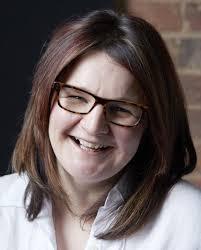 With no UK publishing deal for her debut novel, Tracy Bloom decided to go it alone. A few weeks later, her book was sitting at the top of the Amazon Kindle chart.
With no UK publishing deal for her debut novel, Tracy Bloom decided to go it alone. A few weeks later, her book was sitting at the top of the Amazon Kindle chart.Tracy Bloom: I learned a huge amount from self-publishing
Source: The Guardian, Tuesday 9 July 2013 09.03 EDT
Why did you decide to self-publish your book?
I wrote my novel, No-one Ever Has Sex on a Tuesday, while living in Connecticut, US having moved there temporarily with my husband's job. I left behind a dream career developing rides for theme parks and found myself in a foreign country with a new baby and a desire to make the most of my dramatic change in circumstances. I joined an evening class in creative writing and about a year later I had completed my first romantic comedy, written mostly during my son's afternoon naps. To my utter shock an agent and foreign-rights deals came quickly afterwards, but although I had some very positive comments no UK publisher stepped forward. Having watched the self-publishing industry evolve to become a valid gateway to reach an audience I decided that the time was right to go it alone.
Read the rest of the article here.
Published on July 18, 2013 05:42
July 14, 2013
On Writing: Why I Don't Listen to Stephen King
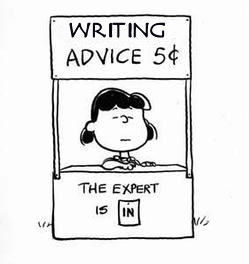 Normally, I don’t like to give people advice about writing. I prefer to offer advice on how to get your writing published, how to deal with the publishing world, how to be a success. I leave the writing instruction manual to other less qualified people – by which I mean famous writers.
Normally, I don’t like to give people advice about writing. I prefer to offer advice on how to get your writing published, how to deal with the publishing world, how to be a success. I leave the writing instruction manual to other less qualified people – by which I mean famous writers.These are the people who get big bucks to tell other people how to write. Their publishers figure, “Hey, the guy’s famous. People will want to hear how he got there.” That much is true, people do want to hear how Stephen King, for example, became a writer. But do famous writers really know anything about writing?
After reading Stephen King’s memoir, On Writing: A Memoir of the Craft, I have to conclude that famous writers don’t know jack. That’s because they are writing intuitively. They have a gift, and the substance of that gift cannot be transferred. They can only say, “This is how I write.”
The section of his book in which Stephen King chronicled his career as a writer (starting in grade school) was wonderful. It was funny, and scary, and very down-to-earth - just like his novels. Unfortunately, he spends most of his book telling us not how he wrote his novels, but how we should write ours. No doubt, if you follow his advice, you will probably end up sounding a lot like Stephen King. (The question is, do you want to?)
Stephen King's Rule #1: Don’t use passive voice
Active voice is great if you want to produce a driving passage, filled with energy and momentum. But what if you want to convey something else – mystery, suspense? Here is an example of passive voice:
The body was hanging in the hall. It had been hung there some time in the night, when we were sleeping. As we made our way down to breakfast, we all stepped around it. Nobody looked up.
We all knew who it was.
Would this passage have worked as well using active voice: “Somebody had hung it in the night"? Absolutely not. The focus here is on the body. Using passive voice increases the tension and forces us to wonder, "Who hung it there?"
Stephen King's Rule #2: Don’t use adverbs
The overuse of adverbs (anything ending in -ly) can be clumsy. However, the adverb, much like any other part of speech, fulfills a purpose. Sometimes you need to describe how someone is performing an action, without a lengthy descriptive phrase.
Gently, oh so gently, they lifted my body out of the river. They placed it on the bank and arranged my tattered clothing to cover what remained of my flesh. Then they stood around me, in perfect silence, their hats in their hands.
If only they had shown me such respect when I was alive.
That passage could have begun without the “gently.” But the impact of the (dead) narrator’s voice would have been compromised, and the force of the final line would have been diminished.
Stephen King's Rule #3: Don’t use a long word when you can use a short one
English, a gloriously complex language, is a mashup of Germanic and Latin roots (among other things). The Germanic lexicon is agglomerative: get up, get down. Latin roots are inflected: ascend, descend. Academic writing favors Latin roots, while colloquial speech prefers the Germanic. If you want to sound like Hemingway, or Stephen King, stick to the Germanic roots. But, if you are after a more scholarly effect, go for the Latin.
As the waiter stared at the coin in his hand, a slow flush spread across his cheeks.
The time traveler leaned back in his chair, adopting a stern demeanor. “My good man,” he said, “I trust the generosity of my emolument will not tempt you into drink."
The waiter threw the dime on the floor. “Next time you can get your own damn burger and fries!”
I'll admit I’ve cheated. In dialogue anything is permissible. But, placed well, those five-dollar words can accomplish much more than their one-syllable equivalents. Here is the last phrase of Camus’ The Stranger, taken from two different translations:
… and that they greet me with cries of hate.
… and that they greet me with howls of execration.
Which version do you think you will remember?
The real rules of writing
There is only one rule for writers. So pay attention. I will not repeat it.
You can do anything, provided that you can pull it off.
That second clause is the key. If you can pull it off, whatever it is, you will have written a masterpiece. If you can’t, you will have produced a piece of trash. Being able to do something successfully is what is important, not whether you follow the rules.
Published on July 14, 2013 10:06
July 10, 2013
Agents Seeking Authors
 Believe it or not, literary agents seek new clients all the time, especially if they are building a list. Before you contact these, or any other literary agent, make sure you read everything on their website first. Specifically, look at who their other clients are. Is this a club you would want to join? What other services do these agencies offer? Does it seem as if most of their services are "book doctoring?" Which publishing houses do they work with?
Believe it or not, literary agents seek new clients all the time, especially if they are building a list. Before you contact these, or any other literary agent, make sure you read everything on their website first. Specifically, look at who their other clients are. Is this a club you would want to join? What other services do these agencies offer? Does it seem as if most of their services are "book doctoring?" Which publishing houses do they work with?These are all good questions to ask yourself as you examine their websites with a fine-tooth comb.
1. Jessica Negron, Assistant and Junior Agent at Talcott Notch Literary
Contact information: jnegron@talcottnotch.net
2 Broad Street
Second Floor, Suites 1,2 & 10
Milford, CT 06460
Phone: 203-876-4959
Fax: 203-876-9517
What she is looking for
"I'm interested in all kinds of YA and Adult fiction, but lean toward science fiction and fantasy (and all the little sub-genres), romance (the steamier, the better), and thrillers."
From the website:
I attended University of New Haven, where I initially studied Forensic Science. After two years I came to the realization that, despite my love for titrations (and saying “phenolphthalein”), I could not possibly spend the rest of my life staring at the color pink (the most vile color in all the world) and I would much rather read The Crucible than ever have to handle one again. I made my escape to the English department, where waiting for me were a plethora of musty tomes and a comforting absence of fire.
For five years I interned with various local publications in both an editorial and design capacity until finally I found a place with Talcott Notch. Moving forward, I will be working with the agency as an Assistant/Junior Agent, performing administrative duties around the office and taking on a select batch of clients. I’m interested in all kinds of YA and Adult fiction, but lean toward science fiction and fantasy (and all the little sub-genres), romance (the steamier, the better), and thrillers.
Some of my favorite authors are Juliet Marillier, Thomas Berger, Jane Austen, Garth Nix, Tamora Pierce, and Chuck Palahniuk. I admire these writers for their shared gifts to establish profound connections with readers through their characters; to build worlds that make my wander-lusting heart ache with longing; and, most of all, to make me consider, question, and reevaluate the pleasures I so often take for granted.
Among my indulgences are roses, breakfast at odd hours, learning useless trivia, video games, witty web comics, movies, and (of course) books.
2. Steven Hutson of WordWise Media
Contact: info@wordwisemedia.com
WordWise Media Services
4083 Avenue L, Suite 255
Lancaster, CA 93536
Phone: (866) 739-0440
Fax: (866) 501-4280
What he is looking for
Steve wants to be surprised with fresh ideas, particularly from young people. He represents a wide range of fiction and nonfiction books for adults and children. Spiritual themes are a favorite. Please no erotica, poetry, chainsaw murders, picture books, or screenplays.
From the website
Steven Hutson is a native of Los Angeles, a child of the sixties, and a storyteller almost from birth. In the course of his career he has worn many hats, from clerk typist to lifeguard to meat cutter. His second book, In Search of Clarity, was released in October 2011. Today he writes a blog about politics and religion, and serves on the Board of Trustees for his local public library. In his limited free time he enjoys swimming, gardening, and cooking.
Published on July 10, 2013 05:52
July 7, 2013
The Man Authors Love to Hate (and vice versa)
 Shed Simove's book is a testament to the power of gimmickry. (It also epitomizes the American Dream: getting a lot of money with little to no effort.)
Shed Simove's book is a testament to the power of gimmickry. (It also epitomizes the American Dream: getting a lot of money with little to no effort.)Shed Simove has proven that with a great gimmick you can sell anything - even nothing. His blank book, What Every Man Thinks About Apart From Sex, made Amazon's bestseller list.
This article appeared on Real Business, July 3, 2013
Here's how I published a bestseller in just nine days (and made a million authors instantly hate me)
The background behind this tale, written by Shed Simove in 2011, is one of ambition, attention to detail and marketing – and it reveals secrets for anyone writing a book, or indeed selling any product or service.
I stared at my computer screen. There, sitting in my inbox was an email that confirmed the world around me had gone totally and utterly, stark-raving, strait-jacket wearing, mad. I read the first line. It said:
“Shed! Your book is number 44 on Amazon... Congratulations!”
Read more here.
Published on July 07, 2013 05:32
July 4, 2013
Correspondence From My Pen Pal at Random House
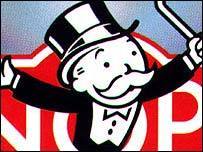 I love getting letters from Random House! They spice up their communications with such truly inspiring phrases: "sacred trust," "supply chain," cutting-edge," "market analytics capabilities," and, most stirring of all, "penetration of emerging markets." (Be still my heart!)
I love getting letters from Random House! They spice up their communications with such truly inspiring phrases: "sacred trust," "supply chain," cutting-edge," "market analytics capabilities," and, most stirring of all, "penetration of emerging markets." (Be still my heart!) What does this letter actually mean? Nothing, really. For those who like to read between the lines, one could infer that RH/Penguin feels left out of the ebook market. (We don't feel their pain.) Unfortunately for them, Amazon moves faster and more efficiently than traditional publishers. What's more, Amazon has captured the hearts (and market) of self-published authors everywhere.
Run, Markus! Run! MARKUS DOHLE
CHIEF EXECUTIVE OFFICER
MEMBER OF THE BERTELSMANN MANAGEMENT SE EXECUTIVE BOARD
July 1, 2013
To Our Authors,
Today, Random House and Penguin are officially united as Penguin Random House. For us, today is a beginning, and I very much want to reach out to you on our first day as a new company, because it all begins with you: you and the books you write and entrust to us to publish. For us, this is a sacred trust, one that before today Penguin and Random House have honored separately. Now it is a commitment and a privilege that unifies us.
Going forward, we will be defined by our mission for publishing with passion the books you write. In our author-focused, publisher-empowered culture, we respect that your most important day-to-day relationship is with your editor and your publishing team, and that will remain untouched at Penguin Random House.
Continuity within Penguin Random House will benefit all of us: The continuity of nearly 250 imprints and publishing houses worldwide, which will retain their individual identities and autonomy. The continuity of experienced, knowledgeable global and local leadership teams, drawn from both Penguin and Random House, who will fully support our publishers in realizing their objectives and your vision for your books. The continuity of vigilant protection of your intellectual property and copyrights.
Over time, as we gradually begin to integrate our companies, we will learn from one another and evolve to better serve you and your readers. With both businesses performing well, we can take our time with this process, to better understand and analyze the complexity and nuances of these important decisions.
One key development I am personally most excited about involves the future investments we will be making on a global scale for growing your readership in all markets. We will be strengthening our supply chain and our support services for physical booksellers while broadening opportunities in the digital arena. We will be developing more cutting-edge marketing tools and programs, further expanding our consumer insights and market analytics capabilities, and continuing to accelerate our penetration of emerging markets worldwide, all of which will allow us to maximize the number of readers we reach on your behalf.
The creation of our new company is the strongest possible affirmation of the future of trade publishing, and of the importance of maintaining strong and vibrant publishing companies, with diverse and innovative editorial teams. Our unprecedented alignment of resources and relationships is built on this foundation: the passionate belief that connecting authors and readers is at the heart of all we strive to accomplish together. On behalf of my colleagues, I deeply thank you for the opportunity to publish your books.
All my best,
Marcus Dohle
Published on July 04, 2013 06:14



